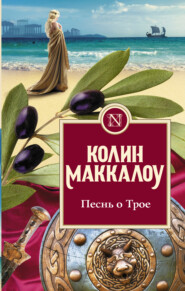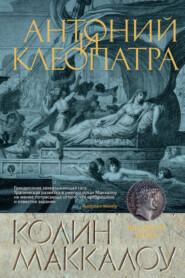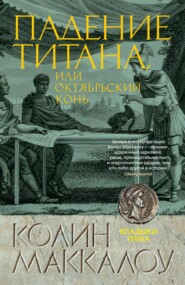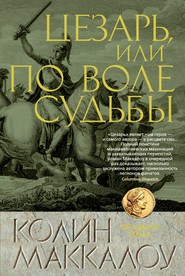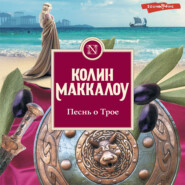По всем вопросам обращайтесь на: info@litportal.ru
(©) 2003-2024.
✖
Antony and Cleopatra
Автор
Год написания книги
2019
Настройки чтения
Размер шрифта
Высота строк
Поля
Not the speech of someone who could be cowed!
Listening for the slightest tremor in Cleopatra’s voice and watching for the slightest tension in her hands, her body, Antony could find none. Worse, he knew from several things Caesar had said that the Treasure of the Ptolemies was indeed secreted away so cunningly that no one could find it who didn’t know how. No doubt the items on Dellius’s list would fetch ten thousand talents, but he needed far more than that. And to march or sail his army to Alexandria would cost some thousands of talents of itself. Oh, curse the woman! I cannot bully or bludgeon her into yielding. Therefore I must find a different way. Cleopatra is no Glaphyra.
* * *
Accordingly a note was delivered to Philopator early the next morning to say that the banquet Antony was giving tonight would be a costume party.
‘But I offer you a hint,’ the note said. ‘If you come as Aphrodite, I will greet you as the New Dionysus, your natural partner in the celebration of life.’
So Cleopatra draped herself in Greek guise, floating layers of pink and carmine. Her thin, mouse-brown hair was done in its habitual style, parted into many strips from brow to nape of neck, where a small knot of it was bunched. People joked that it resembled the rind of a canteloupe melon, not far from the truth. A woman like Glaphyra would have been able to tell him (had she ever seen Cleopatra in her pharaonic regalia) that this uninspiring style enabled her to wear Egypt’s red and white double crown with ease. Tonight, however, she wore a spangled short veil of interwoven flowers, and had chosen to adorn her person with flowers at neck, at bodice, at waist. In one hand she carried a golden apple. The outfit was not particularly attractive, which didn’t worry Mark Antony, not a connoisseur of women’s wear. The whole object of the ‘costume’ dinner party was so that he could show himself to best advantage.
As the New Dionysus, he was bare from the waist up, and bare from mid-thigh down. His nether regions were draped in a flimsy piece of purple gauze, under which a carefully tailored loincloth revealed the mighty pouch that contained the fabled Antonian genitalia. At forty-three, he was still in his prime, that Herculean physique unmarred by more excesses than most men fitted into twice his tally of years. Calves and thighs were massive, but the ankles slender, and the pectorals of his chest bulged above a flat, muscled belly. Only his head looked odd, for his neck was as thick as a bull’s, and dwarfed it. The tribe of girls the Queen had brought with her looked at him and gasped, near died inside for want of him.
‘My, you don’t have much in your wardrobe,’ Cleopatra said, unimpressed.
‘Dionysus didn’t need much. Here, have a grape,’ he said, extending the bunch he held in one hand.
‘Here, have an apple,’ she said, extending a hand.
‘I’m Dionysus, not Paris. “Paris, you pretty boy, you woman-struck seducer,”’ he quoted. ‘See? I know my Homer.’
‘I am consumed with admiration.’ She arranged herself on the couch; he had given her the locus consularis, not a gesture the sticklers in his entourage appreciated. Women were women.
Antony tried, but the stripped-for-action look didn’t affect Cleopatra at all. Whatever she lived for, it wasn’t the physical side of love, so much was certain. In fact, she spent most of the evening playing with her golden apple, which she put into a glass goblet of pink wine and marveled at how the blue of the glass turned the gold a subtle shade of purple, especially when she stirred it with one manicured finger.
Finally, desperate, Antony gambled all on one roll of the dice: Venus, they must come up Venus! ‘I’m falling in love with you,’ he said, hand caressing her arm.
She moved it as if to brush off the attentions of an insect. ‘Gerrae,’ she growled.
‘It is not rubbish!’ he said indignantly, sitting up straight. ‘You’ve bewitched me, Cleopatra.’
‘My wealth has bewitched you.’
‘No, no! I wouldn’t care if you were a beggar woman!’
‘Gerrae! You’d step over me as if I didn’t exist.’
‘I’ll prove that I love you! Set me a task!’
Her answer was immediate. ‘My sister Arsinoë has taken refuge in the precinct of Artemis at Ephesus. She is under a sentence of death legally pronounced in Alexandria. Execute her, Antonius. Once she’s dead, I’ll rest easier, like you more.’
‘I have a better way,’ he said, sweat beading his forehead. ‘Let me make love to you – here, now!’
Her head tilted, skewing the veil of blossoms. To Dellius, watching intently from his couch, she looked like a tipsy flower vendor determined on a sale. One yellow-gold eye closed, the other surveyed Antony speculatively. ‘Not in Tarsus,’ she said then, ‘and not while my sister lives. Come to Egypt bearing me Arsinoë’s head, and I’ll think about it.’
‘I can’t!’ he cried, gasping. ‘I’ve too much work to do! Why do you think I’m sober? A war brewing in Italia, that accursed boy faring better than anyone could have expected – I can’t! And how can you ask for the head of your own sister?’
‘With relish. She’s been after my head for years. If her plans succeed, she’ll marry my son, then lop mine from my shoulders in the flicker of an eye. Her blood is pure Ptolemaic and she’s young enough to have children when Caesarion is old enough. I am the granddaughter of Mithridates the Great – a hybrid. And my son, more hybrid yet. To many people in Alexandria, Arsinoë represents a return to the proper bloodlines. If I am to live, she must die.’
Cleopatra slid from the couch, discarding her veil, wrenching ropes of tuber roses and lilies from her neck and waist. ‘Thank you for an excellent party, and thank you for an illuminating trip abroad. Philopator has not been so entertained these last hundred years. Tomorrow we sail home to Egypt. Come and see me there. And do look in on my sister at Ephesus. She’s such an absolute chuckle. If you like harpies and gorgons, you’ll just love her.’
‘Maybe,’ said Dellius, made privy to some of this the next morning as Philopator dipped golden oars in the water and started home, ‘you frightened her, Antonius.’
‘Frightened her? That cold blooded viper? Impossible!’
‘She doesn’t weigh much more than a talent, whereas you must weigh in the region of four talents. Perhaps she thinks you’d crush her to death.’ He tittered. ‘Or ram her to death! It’s even possible that you would.’
‘Cacat! I never thought of that!’
‘Woo her with letters, Antonius, and get on with your duties as Triumvir east of Italia.’
‘Are you trying to push me, Dellius?’ Antony asked.
‘No, no, of course not!’ Dellius answered quickly. ‘Just remind you that the Queen of Egypt is no longer on your horizon, whereas other people and events are.’
Antony swept the paperwork off his desk with a savage swipe that had Lucilius down on his hands and knees immediately, picking them up. ‘I’m fed up with this life, Dellius! The East can rot – it’s time for wine and women.’
Dellius looked down, Lucilius looked up, exchanged a speaking glance. ‘I have a better idea, Antonius,’ Dellius said. ‘Why not get through a mountain of work this summer, then spend the winter in Alexandria at the court of Queen Cleopatra?’
FOUR
For the fourth year in a row, Nilus did not inundate. The only cheering news was that those along the river who had survived the plague seemed immune to it, as was equally true in the Delta and Alexandria. These folk were hardier, healthier.
Sosigenes had been visited by an idea, and issued an edict in Pharaoh’s name; it ordered that the lowest sections of Nilus’s banks be broken down a further five feet. If any water came over the tops of these prepared gaps, it would flow into huge ponds excavated in advance. All around the rims of the ponds stood treadmill water wheels ready to feed water into shallow channels snaking off across the parched fields. And when mid-July brought the inundation that was no inundation, the river rose just high enough to fill the ponds. This was a far easier way of irrigating by hand than the traditional shaduf, a single bucket that had to be dipped into the river itself.
And people were people, even in the midst of death; babies had been born, the population was increasing. But Egypt would eat.
The threat from Rome was in temporary abeyance; her agents told Cleopatra that from Tarsus Antony had gone to Antioch, paid calls on Tyre and Sidon, then taken ship for Ephesus. And there a screaming Arsinoë was dragged from sanctuary to be run through by a sword. The high priest of Artemis looked likely to follow her, but Antony, who disliked these Eastern bloodbath vengeances, intervened at the ethnarch’s request and sent the man back to his precinct unharmed. The head would not be a part of Antony’s baggage if and when he visited Egypt; Arsinoë had been burned whole. She had been the last true Ptolemy, and with her death that particular threat to Cleopatra vanished.
‘Antonius will come in the winter,’ said Tach’a, smiling.
‘Antonius! Oh, my mother, he is no Caesar! How can I bear his hands upon me?’
‘Caesar was unique. You cannot forget him, that I understand, but you must cease to mourn him and look to Egypt. What matter the feel of his hands when Antonius possesses the blood to give Caesarion a sister to marry? Monarchs do not mate for gratification of the self, they mate to benefit their realms and safeguard the dynasty. You will get used to Antonius.’
In fact, Cleopatra’s greatest worry that summer and autumn was Caesarion, who hadn’t forgiven her for leaving him behind in Alexandria. He was irreproachably polite, he worked hard over his books, he read voluntarily in his own time, he kept up his riding lessons, his military exercises and his athletic pursuits, though he would not box or wrestle.
‘Tata told me that our thinking apparatus is located inside our heads and that we must never engage in sports that endanger it. So I will learn to use the gladius and the longsword, I will shoot arrows and throw rocks from slings, I will practice casting my pilum and my hasta, I will run, hurdle and swim. But I will not box or wrestle. Tata wouldn’t approve, no matter what my instructors say. I told them to desist, not to come running to you – does my command count for less than yours?’
She was too busy marveling at how much he remembered about Caesar to hear the message implicit in his last words. His father died before the child turned four.
But it was not the argument over contact sport or other small dissatisfactions that gnawed at her; what hurt was his aloofness. She couldn’t fault his attention when she spoke to him, especially to issue an order, but he had shut her out of his private world. Clearly he felt an ongoing resentment that she couldn’t dismiss as petty.
Oh, she cried to herself, why do I always make the wrong decisions? Had I only known what effect excluding him from Tarsus would have, I would have taken him with me. But that would have been to risk the succession on a sea voyage – impossible!
Then her agents reported that the situation in Italia had deteriorated into open war. The instigators were Antony’s termagant wife, Fulvia, and Antony’s brother, the consul Lucius Antonius. Fulvia snared that famous fence-sitter and side-switcher Lucius Munatius Plancus and bewitched him into donating the veteran soldiers he was settling around Beneventum – two full legions – for her army; after which she persuaded that aristocratic dolt, Tiberius Claudius Nero, whom Caesar had so detested, to raise a slave revolt in Campania – not an appropriate task for one who had never in his life conversed with a slave. Not that Nero didn’t try, just that he didn’t even know how to start his commission.
Having no official position save his status as Triumvir, Octavian slid in careful Fabian circles on Lucius Antonius’s perimeter as the two legions that Lucius himself had managed to recruit moved up the Italian peninsula toward Rome. The third Triumvir, Marcus Aemilius Lepidus, took two legions to Rome to keep Lucius out. Then the moment Lepidus saw the glitter of armor on the Via Latina, he abandoned Rome and his troops to a jubilant Fulvia (and Lucius, whom people tended to forget).







